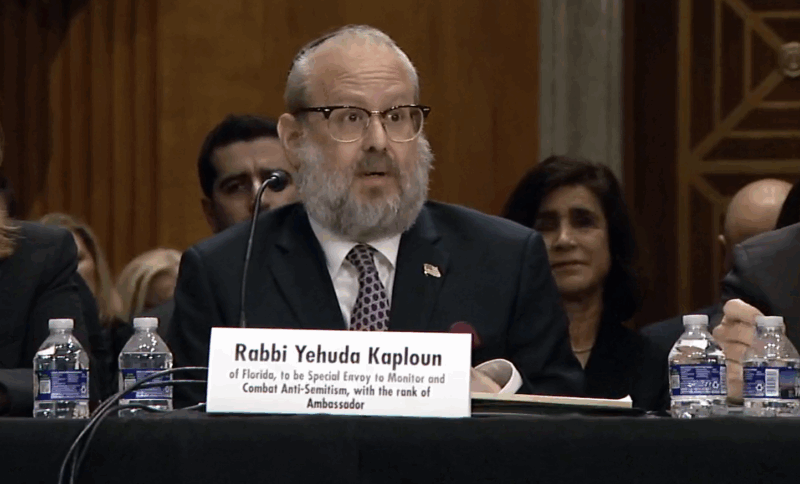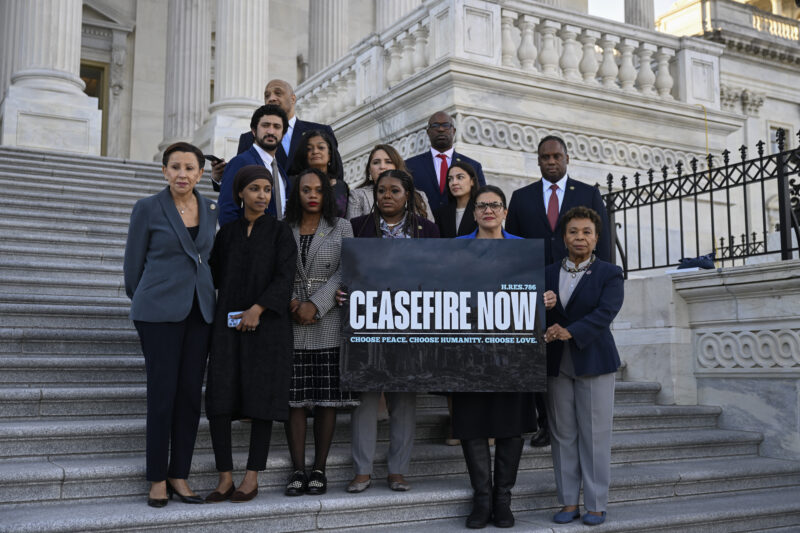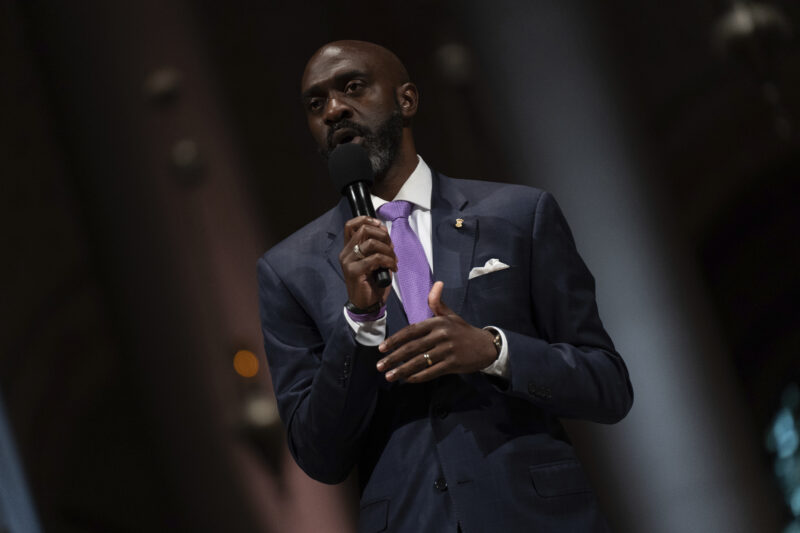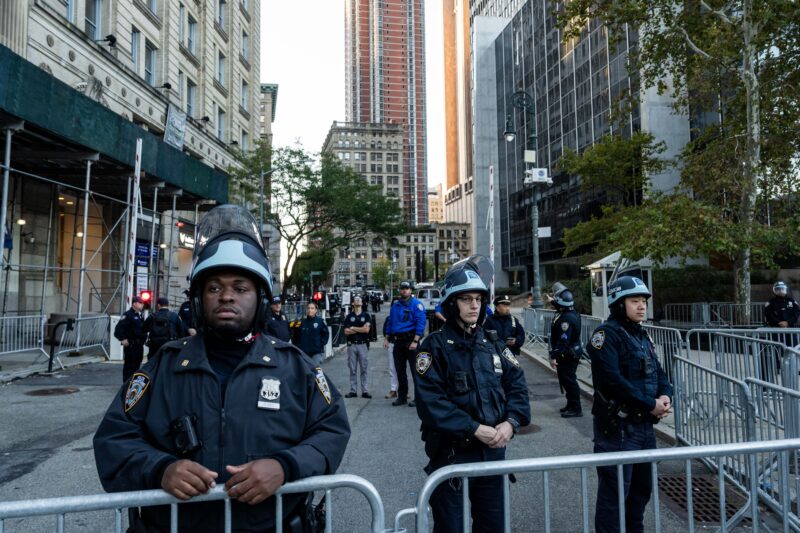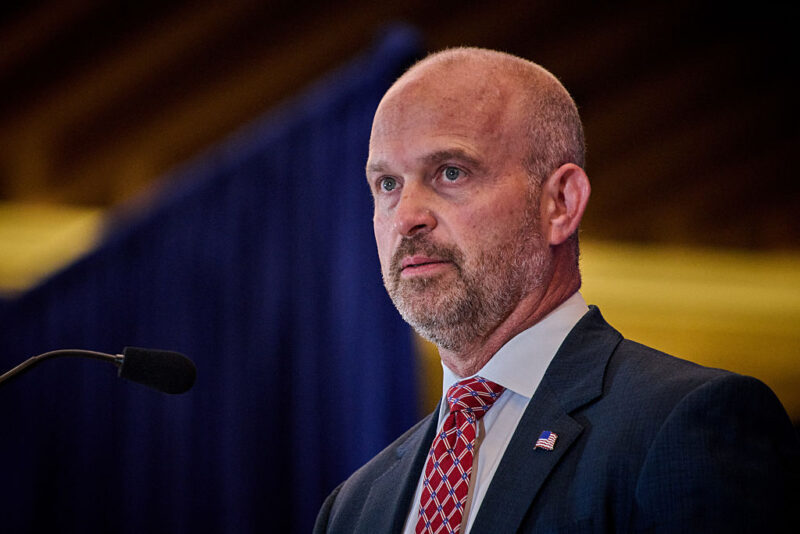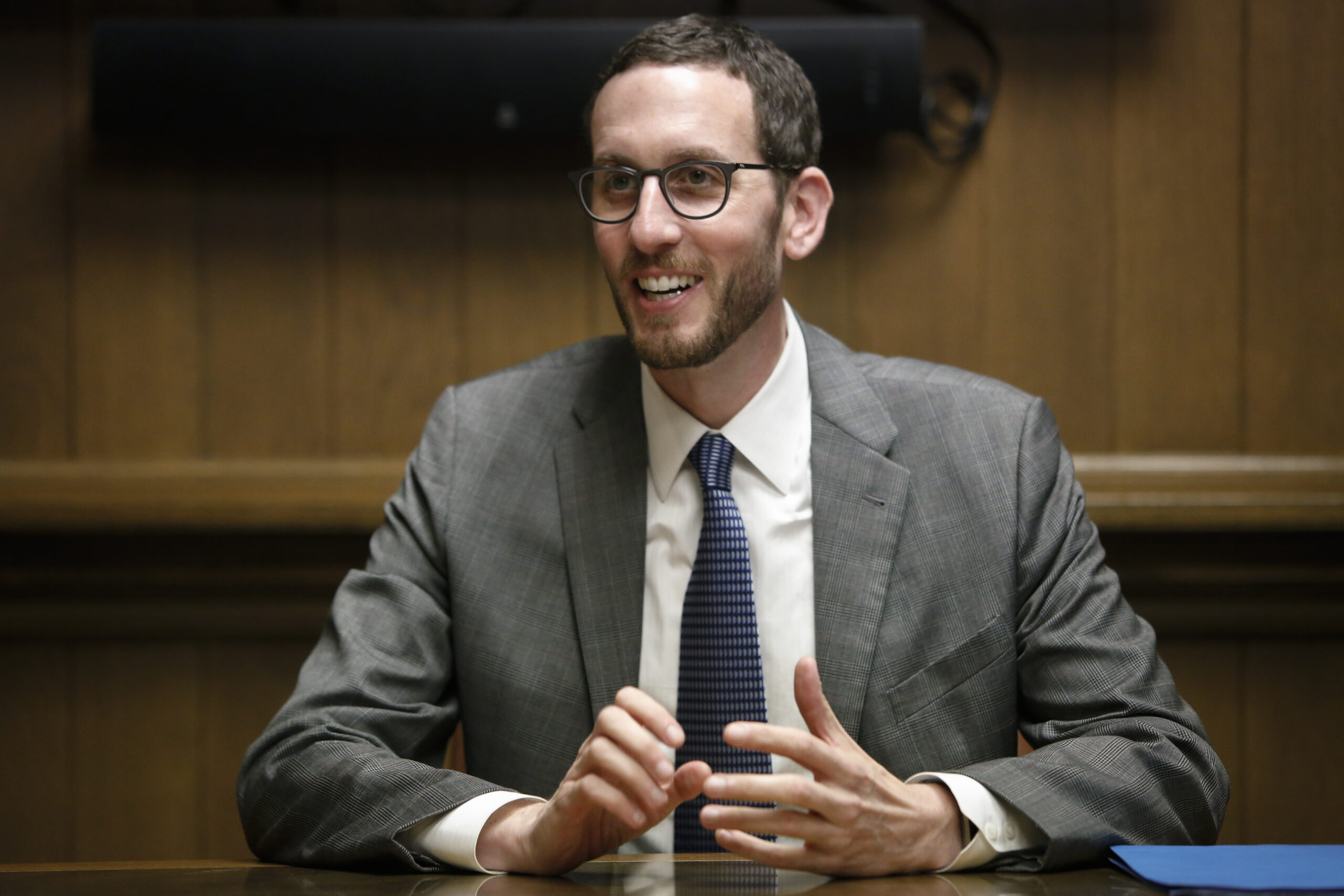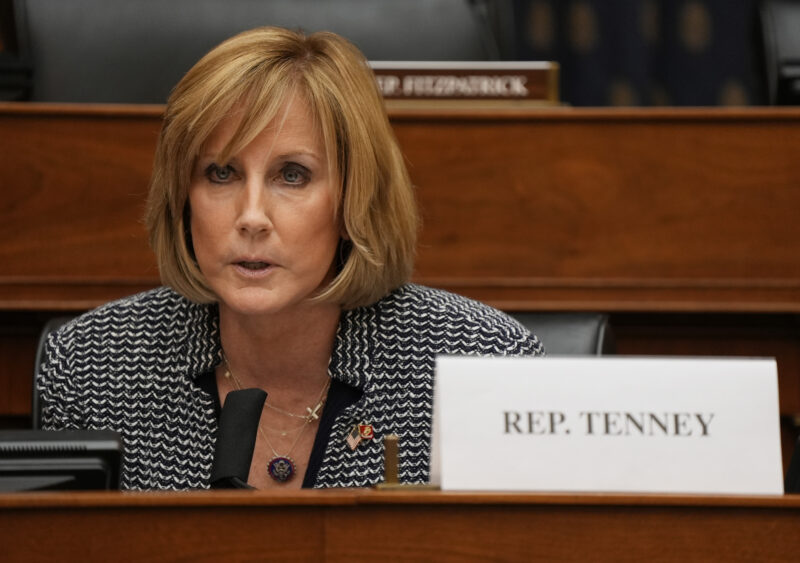House committee approves bill making changes to campus antisemitism investigation procedures
The amendment requires schools to better publicize their procedures for investigating discrimination complaints and name an employee to coordinate them; it also changes investigative procedures at the Department of Education

Anna Moneymaker/Getty Images
Rep. Lori Chavez-DeRemer (R-OR) arrives at a House Republican Conference meeting at the U.S. Capitol on November 2, 2023 in Washington, DC.
The House Education and Workforce Committee voted 25-15 on Thursday to advance the Civil Rights Protection Act, a bill that places new requirements on universities and the Department of Education relating to investigating complaints of discrimination based on race, color, national origin, religion or shared ancestry under Title VI of the Civil Rights Act.
Lawmakers supporting the bill said it was aimed at addressing rising antisemitism on college campuses.
Democrats, arguing that the bill, which was introduced last Friday, had been moved too hastily and adds onerous new requirements on the Department of Education, voted nearly unanimously against the legislation. Rep. Kathy Manning (D-NC) was the only Democrat who supported it.
The bill, led by Rep. Lori Chavez-DeRemer (R-OR), would require schools receiving federal funding to make public and distribute to students and their families their procedures for investigating complaints of discrimination and information on how to file complaints with both the school and Department of Education.
Schools would also have to designate an employee to coordinate efforts to comply with Title VI and implement procedures for timely communication with and notifications for complainants.
Any school that does not comply with these provisions for two consecutive years would become ineligible to receive aid for at least the next two years.
The bill would additionally change Department of Education procedures such that cases under investigation would not be closed or delayed if they become the subject of a lawsuit or a complaint with another agency.
It would also require the Department of Education to brief and provide monthly reports to Congress on the number of complaints it has received and how it is addressing them.
Chavez-DeRemer said the recent rise in campus antisemitism has “exposed a dire need for transparency and common sense standards for these institutions to follow when addressing discrimination.”
The committee approved by a voice vote an amendment from Manning that would require the Office of Civil Rights to launch a campaign to ensure that students and schools are aware of legal protections against antisemitism on campuses.
Rep. Bobby Scott (D-VA), the committee’s ranking member, said that the Office of Civil Rights has a backlog of 11,000 pending cases, and that the changes to Department of Education procedures could exacerbate that backlog and further slow down resolutions of cases. But, he said, he was willing to work on improving the bill.
The committee rejected along party lines an amendment from Scott that called for a significant increase in funding for the Office of Civil Rights to $280 million — double the administration’s budget request — to address the new requirements.
Rep. Virginia Foxx (R-NC), the committee’s chair, highlighted that the proposal well exceeded the administration’s own stated needs, and would be symbolic given that the committee does not control funding for the Department.
It also rejected, again on party lines, an amendment from Manning that pushed for additional funding to implement the legislation’s new requirements, without providing a specific funding request.
Manning proposed, but ultimately withdrew, an amendment requiring the secretary of education to designate an official at the department to lead efforts to combat campus antisemitism. The provision is also included in her Countering Antisemitism Act.
Chavez-DeRemer highlighted the Orthodox Union as a particularly important backer of the bill.
“The introduction of The Civil Rights Protection Act comes at an important time, following a surge of antisemitic protests on college campuses across the nation,” Nathan Diament, the executive director of public policy at the OU, said in a statement. “This is a critical step toward protecting Jewish students and reinforcing the values that define our country. This bill represents a crucial turning point in our fight to vindicate the rights of Jewish students to live and study without fear of discrimination or hostility at their chosen university. ”
The Committee also voted unanimously to pass a bill extending the Never Again Education Act’s Holocaust education programming through 2030, past its current expiration in 2025. The bill incorporates elements of the HEAL Act, ordering a study by the United States Holocaust Memorial Museum of Holocaust education programs across the country.
The education committee voted 23-16 for the Transparency in Reporting Adversarial Contributions to Education (TRACE) Act, which would require public schools to notify parents about foreign funding in elementary and secondary schools.
It would allow parents to review and make copies of materials funded by foreign countries and require schools to inform parents, when asked, how many personnel are compensated by a foreign country, what donations they have received, what agreements exist with foreign countries and what financial transactions have taken place between schools and foreign countries.
The regulations would also apply to foreign entities of concern — companies that are owned or controlled by Iran and other foreign adversaries.
Rep. Aaron Bean (R-FL), the bill’s sponsor, highlighted concerns about the Qatar Foundation’s funding for public schools as one of the motivations for the bill.
Rep. Suzanne Bonamici (D-OR) described the bill as a “solution in search of a problem” which could also have unintended consequences for language education and other cultural exchange programs in schools, and impose burdensome and unclear new requirements on them.



















